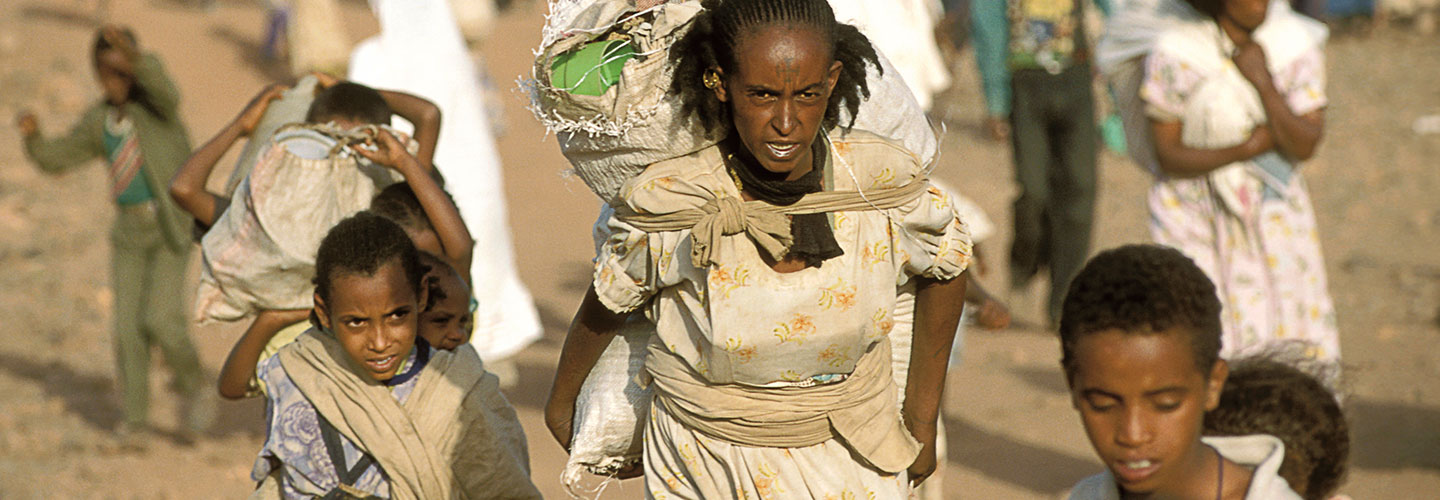Selihom and Yafiet are among the more than 400,000 refugees who have fled Eritrea in the past decade. Life in that country is a struggle. It is one of the poorest countries in the world, and Eritreans have few of the rights that Americans have. They are not allowed to vote for their leaders and can be jailed for speaking out against the government. Many people are persecuted for their religious beliefs. Until recently, most Eritreans were not allowed to leave the country.
In 2008, police came to arrest Selihom’s mother, Selam, because of her religion. In a split second, she made the most painful decision of her life: to leave 20-month-old Selihom and her brother behind. As the officers burst through the front door of their home, Selam ran out the back. She hid with friends until she could flee to Sudan. From there, she made her way to the U.S. and began figuring out how to get her kids to join her.
After Selam’s escape, her two young children lived with their grandparents. They were in constant danger. The Eritrean government often punishes the families of people who have fled the country.
No matter what, Yafiet knew his future would be grim if he stayed. In Eritrea, nearly every teenager is forced into the military after 11th grade. Once he became a soldier, there would be no telling when—or if—Yafiet would ever be free again.
Selam grew more desperate to get her children out of Eritrea. She finally saved up enough money and put a plan in place. It was dangerous, but there was no other way: Selihom and Yafiet would have to cross the desert.

